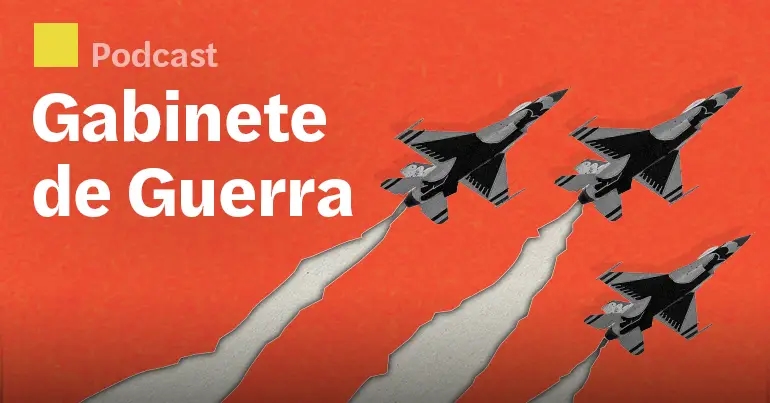In Venice, Israeli filmmaker criticizes war in Gaza

Israeli director, screenwriter and producer Hagai Levi criticized on Tuesday (2) the war launched by Benjamin Netanyahu's government against Hamas in the Gaza Strip.
The statement was made during the Venice Film Festival, whose organizers received a letter from a group of actors, directors and singers demanding that the world of culture take a more courageous stance and condemn Israel for the "genocide" committed in the Palestinian enclave.
"There are some of my filmmaker and screenwriter friends who signed the appeal about Gaza. It's important to talk about it here because what's happening is horrible and needs to be stopped," said Levi, who is presenting his series "Etty" at Italy's main film event.
Out of competition, the film stars Julia Windischbauer, Sebastian Koch and Leopold Witte, and is based on the diaries of Etty Hillesum, a Dutch Jewish writer who died in Auschwitz in 1943.
"Protesting is very important to me, and I think the series addresses issues that are connected to what's happening, with Etty's speeches against hate, but it also talks about the dehumanization of people, of human life, of seeing them only as enemies," Levi explained.
According to the Israeli filmmaker, "this is what happens with this regime, which not only kills and imprisons Palestinians, but also attacks its own people." However, there are hundreds of thousands of Israeli citizens fighting against this regime.
"Just because we are Israelis doesn't mean we support him; we fight in the streets and, however tenuous it may be, we have hope that things can change," he emphasized.
Levi's series uses an unspecified contemporary setting—in terms of clothing, transportation, objects, and furniture styles, without cell phones, technology, or the internet—but fully reconstructs what happened to Etty (masterfully played by Windischbauer) in Nazi-occupied Holland in the early 1940s.
Considered a talented 27-year-old college student, Etty seeks her way in the world despite a stifling family and unclear ideas about her future. After beginning therapy with psychologist Julius Spier (Koch), who also becomes her lover, she experiences a profound internal and spiritual transformation that leads her, after losing everything, to decide not to run away, but to stay and help those who share her fate.
For Levi, the decision to use a more contemporary setting helps "feel this story more closely," because what happened back then "can happen again, in a different way." One only has to look at the present to know "that very serious and grave things are happening."
"On October 7th, I saw images of the Holocaust, with families hidden in closets or others exterminated. And even in the images from Gaza, the Holocaust could not be overlooked. We have the feeling that what is happening belongs not only to the past, but also to the present, and we cannot forget that a far-right figure is now in power in the Netherlands," he said.
Regarding calls from some groups for a boycott of Israeli artists, Levi commented that "there is a reason for this resentment towards Israel, and it is partly justified, we cannot deny it, but we have to be careful."
According to him, "many Israelis, especially creative people and artists, are against this regime, the war and what is being done in our name."
"There's no point in protesting against artists, because many of them in Israel want change in the country. They represent voices opposing this horrible regime," he emphasized.
Finally, regarding the decision to adapt Etty Hillesum's diaries, first published in 1981, Levi explains: "It's a book that changed my life. It made me understand how, even in difficult times, it's possible to gain autonomy and an inner strength that makes external circumstances less important. When that happens, as Etty wrote, they can't take anything from you, even if everything is taken from you," he concluded.
terra




